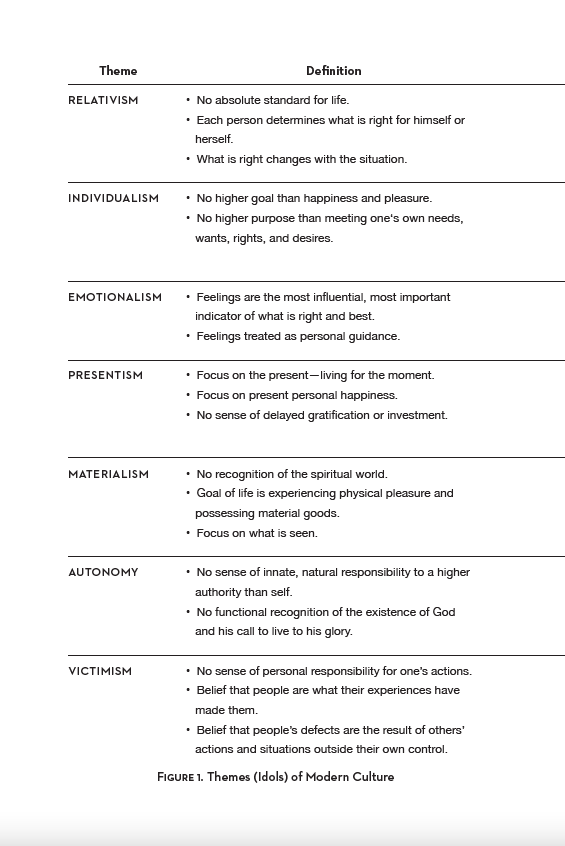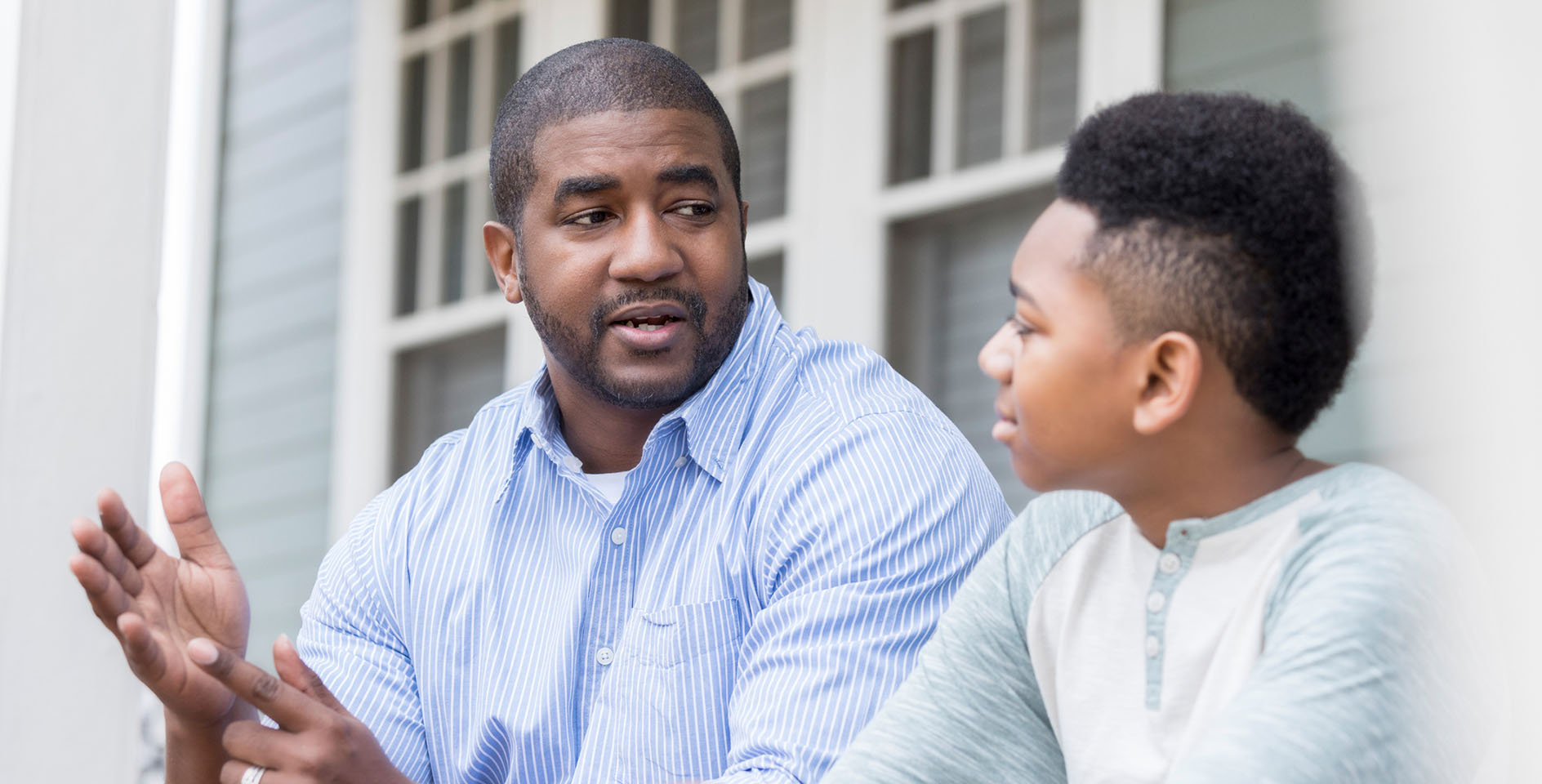Since the fall, people build culture on the basis of many varied and competing authorities. Gone are the simple days of Genesis 1 and 2. Now the cultural canvas is stained with sin, and until eternity human culture will not perfectly reflect the will of God. This is why our response to culture is so important. It is one of our primary moral struggles. Teenagers need to grow up understanding this and being prepared for it.
The struggle with culture is inescapable, and it is always moral. People always interact with the world in a spirit of submission to God and his Word or in rebellion against him and dependence on their own minds. The cultural struggle is always about right and wrong, true and false, good and bad, belief and unbelief, human desire and God’s will. Isolation is impossible. Assimilation is capitulation. We need a better way.
The need for protection
You can see the influence of culture in the way we dress. Few of us wear the same style of clothing we wore ten years ago or maybe even five. Skirt lengths go up and down, and tie widths go from narrow to wide and back again. Have you ever looked at a family photo album and said, “I can’t believe I wore that!”? Fashion is a pointed example of the influence of culture. It shapes not only what we do but also the way we think and the way we see.
The example I used with my teenagers to capture the insidious influence of the surrounding culture on them (and us) is air. Like the air we constantly breathe, culture is the spiritual air that our hearts constantly absorb. Many of the pollutants in the physical air are unseen. The same is true with culture.
We as parents have made a great error in our tendency to emphasize obvious issues (sex, drugs, violence, abortion, and so on) while neglecting the more deceptive, unseen pollutants in the cultural air around us. The result is that although our children may not participate in the “biggies,” they end up serving the idols of the surrounding culture.
(See the figure at the bottom for examples of these idols, their impact on our teenagers, and their biblical alternatives.)
Surely, these idols are more to be feared because they creep up on us unseen, appearing harmless and attractive (see Col. 2:8). They also powerfully play to the desires of the sinful nature—that is, they feed the very thing that God, by his Spirit, seeks to destroy.
Another error we have tended to make as parents is to blame the vehicle rather than focus on the idol themes these vehicles promote. A variety of vehicles—internet, social media, government, music, movies, education, television—all transmit and promote the philosophy of the culture. None of these vehicles are in themselves bad or dangerous. The danger is in the way they are used to promote the things they promote.
The point is not to slay the messenger—these vehicles are used for both good and evil. We must be aware of the power of the media to transmit a culture’s ideas, but it is the ideas that are dangerous, so it is the ideas that must be the focus of our attention. For example, many Christian parents will not let their teenage children go to R-rated movies but will permit them to scroll for hours through social media, which is also a vehicle that transmits the perspectives, relationships, and values of the surrounding culture.
This is where the pollution metaphor helps us. When there are poisons in the physical air, people wear protective equipment that filters them out. In the same way our teenagers need spiritual filters against the unseen poisons in the cultural air. They need the protection of a biblical world- and life-view, and, as parents, we want to begin giving them one from the very earliest moments of their lives. We also want to have eyes of faith to see that every situation, relationship, and problem in their lives is an opportunity for us to encourage them to rethink and carefully apply a biblical view of life to concrete situations.
Talking to your teenager about culture
In light of this, don’t be hesitant to talk, talk, talk to your teenager. This cannot be a time when your relationship grows distant. Your child needs your parenting as much as ever, so seek him or her out.
Let me suggest some strategies for these conversations.
- Don’t wait for your teenager to talk to you. Seek your child out in a way that is warm, friendly, and affirming. Teenagers who are on the defensive won’t talk freely and won’t listen well.
- Don’t settle for non-answers. Follow up the yeses and nos. Ask questions that your teenager cannot answer with a yes or no and that require him to disclose what he is thinking, feeling, and doing.
- Be positive. Don’t be like a detective hunting for what is wrong. The purpose of these talks is not to “catch” the teenager but to help her to understand, desire, and do what is right. So much of the talking that goes on between teenagers and their parents is negative and discouraging to the teenager.
- Lovingly seek to expose the faults in your teenager’s thinking without making him feel ignorant or stupid. Teach him, in an affirming way, to see where he has breathed in the pollutants of his culture.
- Become a partner in your teenager’s struggle by sharing your own struggle to live a godly life in an ungodly culture. Admit to the places where you have been influenced. Ask your teenager to pray for you as you promise to pray for her in her struggle.
- Always point your teenager to Christ. Remind your child that Christ daily gives us mercy and grace in our moments of need and patiently continues to work in us until his work is complete.
- Always keep in mind that you cannot protect your children from culture. The only effective strategy is to prepare them to deal with culture in a biblical fashion. This will take years of loving commitment on your part.
- Model the character of Christ. Don’t be drawn into negative verbal power struggles. Greet anger, negativity, and accusation with soft-spoken strength. Don’t beat your teenager with words but win him with Christlike love.


Excerpt taken from Chapter 9: Life in the Real World, Age of Opportunity: A Biblical Guide to Parenting Teens, Revised and Expanded by Paul David Tripp.










